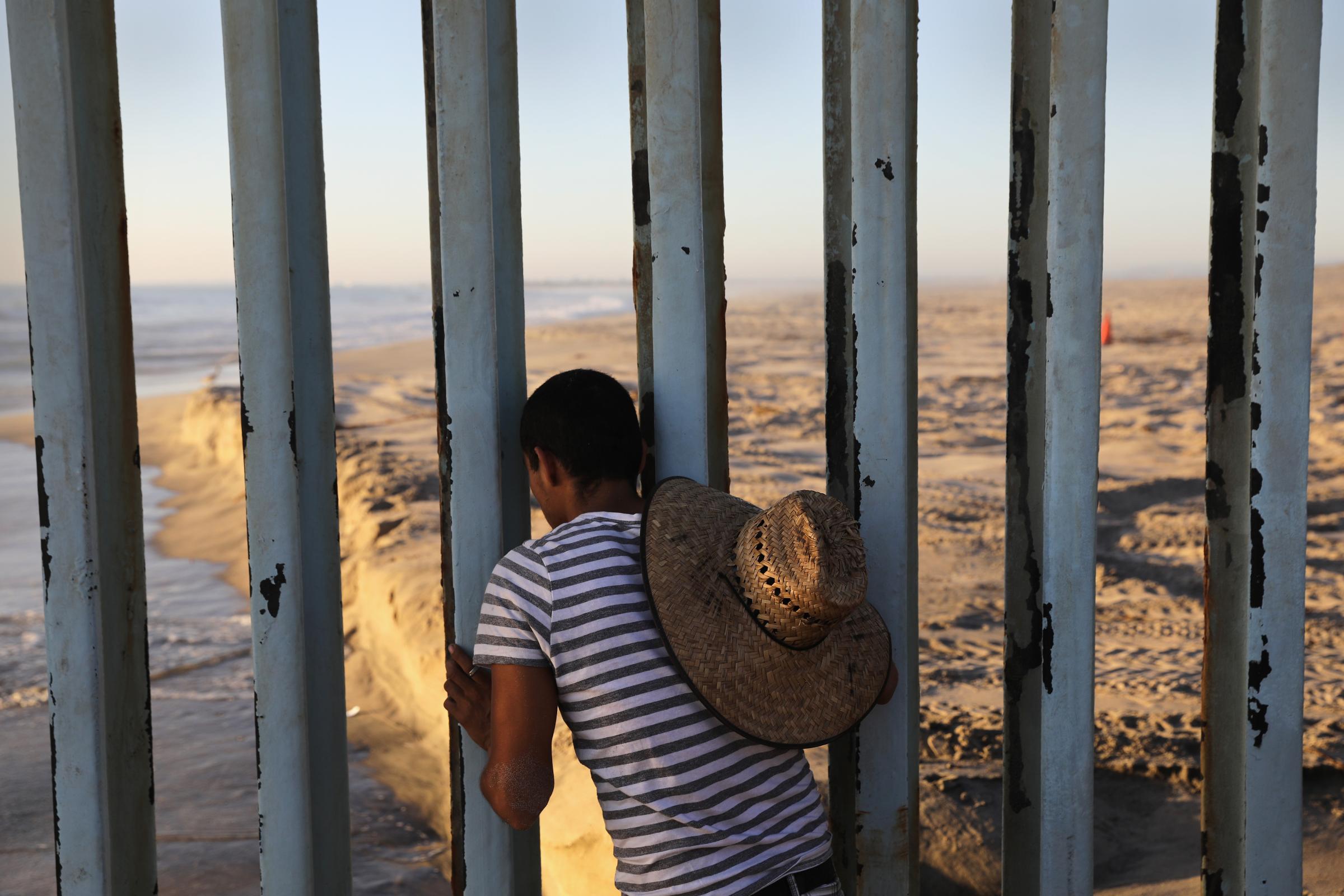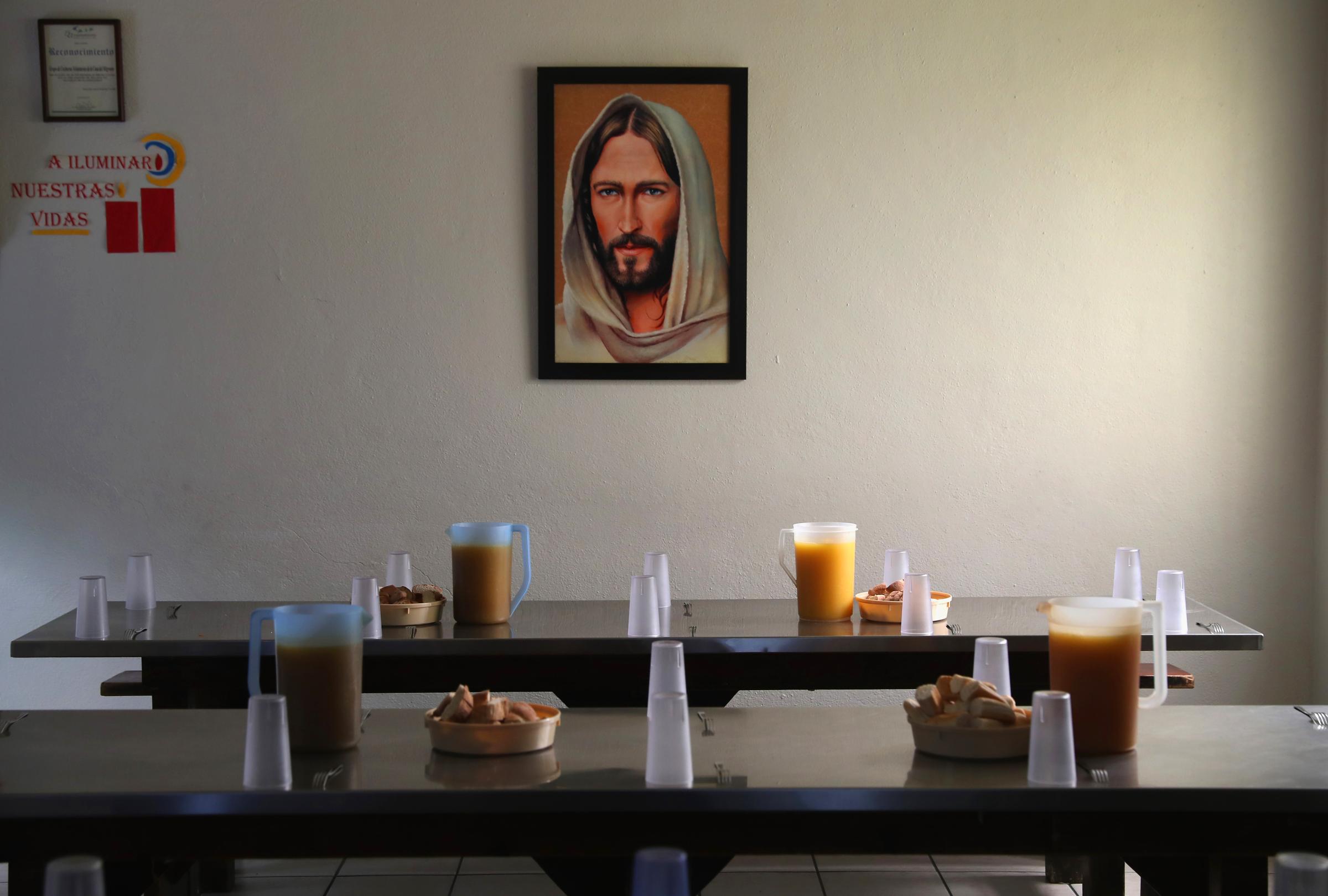The digital image shows a clenched fist bathed in the red, white and green of Mexico’s flag and decorated with the nation’s emblematic eagle. “Consumers, to the Shout of War,” it says in Spanish above the fist. “Consume products made in country…Use your buying power to punish the companies that favor the politics of the new U.S. government.”
Created by a Mexican food-activist group, the image is part of a slew of messages, memes and videos that have been spreading in Mexico in recent days as President Donald Trump pushes for a border wall, deportations and punishing new trade rules. Others messages call for specific boycotts of U.S. companies in Mexico, including McDonalds, Walmart and Coca-Cola. One of the most heavily trending hashtags is #AdiosStarbucks, or “Goodbye Starbucks,” referring to the Seattle company which has opened hundreds of coffee houses here.
The boycotts illustrate the defiant mood brewing in Mexico in reaction to Trump’s tumultuous first week in the White House. President Enrique Pena Nieto canceled a bilateral meeting in Washington on Thursday after Trump insisted Mexico should pay for the border wall. The Mexican government and leading business lobbies have said the country should pull out of the North American Free Trade Agreement, or NAFTA, rather than accept a bad rewrite. And opposition leader Andres Manuel Lopez Obrador has called for a lawsuit in the United Nations against the planned border wall.
If a trade war is brewing, it will not be fought on a level playing ground. Mexico has an economy that is only the tenth of the size of its northern neighbor and U.S. import tariffs and the deportation of millions of migrants could push it into recession. But however daunting the Trump White House is, Mexico looks like it won’t go down without a fight.
“We need to stand up to Trump’s threats and his economic war,” says Enzzo Omar Sosa, part of a collective called Mexicanos Al Grito de Guerra, or “Mexicans to the Shout of War.” The group has social media accounts with hundreds of thousands of followers, in which it has been heralding the cries to boycott U.S. companies. “We need to support Mexican companies, which provide jobs and maintain our macro economy,” he said. Hitting U.S. companies could also make them pressure President Trump over his aggressive positions against Mexico, he said.
One Photographer Traveled the Full Length of the U.S. Border With Mexico


















It is as yet uncertain how much boycotts will affect the bottom line of U.S. businesses here, but they have gained prominence since Trump signed the executive order for the border wall on Wednesday. A shift manager at a Starbucks in the middle-class Roma neighborhood of Mexico City said Thursday he had already seen a slump of about 10 percent in customers at that particular outlet. “It’s bad because this is a franchise and it affects the jobs of Mexican workers,” said the manager, who asked his name not be used as he was not an authorized spokesman. Starbucks has not voiced any political support for Trump, and was itself the subject of a protest by Trump supporters in December.
There have also been several demonstrations against Trump outside the U.S. embassy in Mexico City, where protesters have burned piñatas of the president. Protester Maria Garcia, of the Bi-National Coalition Against Trump, said the insistence that Mexico pays for the wall is the main contention. “They can build what they want in their territory. But pay for it themselves. The demand we pay for it is a weapon to beat us into submission. It is blackmail.”
The White House has sent mixed messages on how it will actually get Mexico to foot the bill for a wall that could cost up to $15 billion. Press Secretary Sean Spicer on Thursday floated the idea of a 20% tax on Mexican imports, but then later said that was just “one idea.” During the campaign, Trump discussed a wall tax on the $25 billion in remittances sent home by Mexican migrants working in the United States every year. Either of those would, if enacted, have a catastrophic impact on Mexico’s economy.
These positions and others have made Trump a despised figure in Mexico, with a poll in September finding fewer than 3% here had a positive opinion of him. Yet President Enrique Peña Nieto does not fare much better among his own people. A recent Reforma poll found his approval rating had plunged to 12 percent, the lowest among a Mexican president in recent history. Corruption scandals, violent crime and rising prices have all paid their toll on him.
Diverting the anger to a foreign figure could provide Peña Nieto with some relief. But politics expert Maria Eugenia Valdez thinks he has failed to capitalize on it. “He has taken all the wrong steps. He should never have planned to meet Trump so early in his presidency. He is not offering a convincing leadership,” she said. Valdez thinks that the Mexico–U.S. relationship is likely headed for disaster, whatever people do. “NAFTA is already dead,” she said. “It is like a marriage is breaking up. But it is not going to be an easy divorce.”
More Must-Reads from TIME
- Why Trump’s Message Worked on Latino Men
- What Trump’s Win Could Mean for Housing
- The 100 Must-Read Books of 2024
- Sleep Doctors Share the 1 Tip That’s Changed Their Lives
- Column: Let’s Bring Back Romance
- What It’s Like to Have Long COVID As a Kid
- FX’s Say Nothing Is the Must-Watch Political Thriller of 2024
- Merle Bombardieri Is Helping People Make the Baby Decision
Contact us at letters@time.com